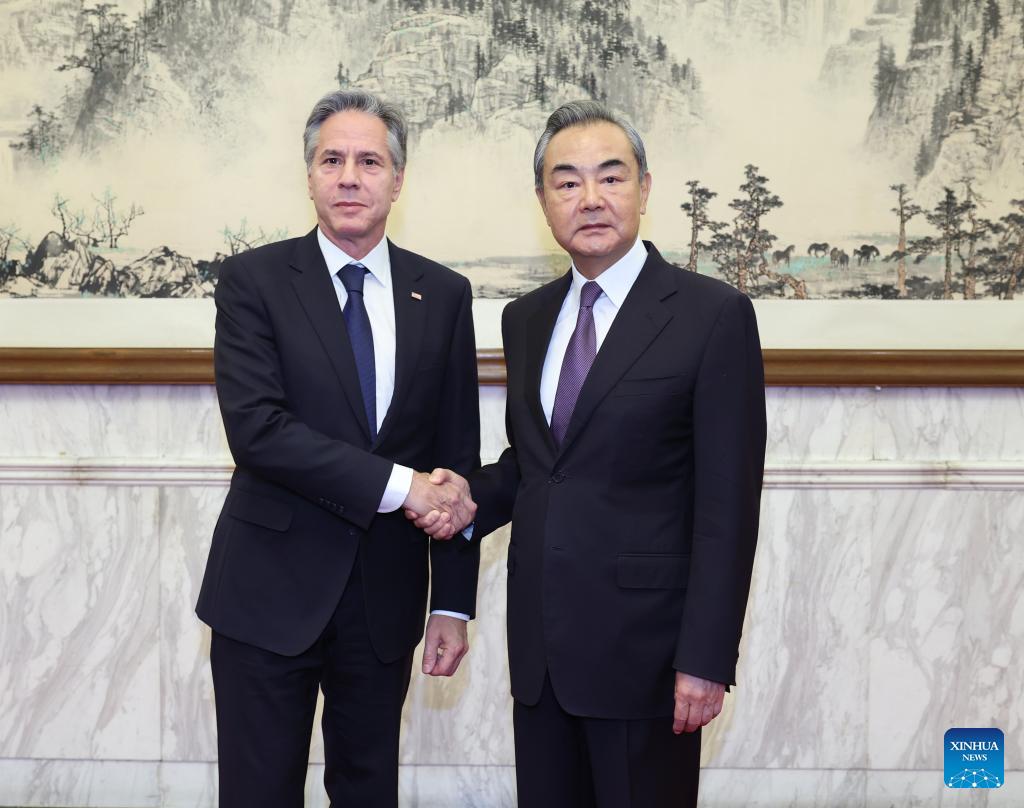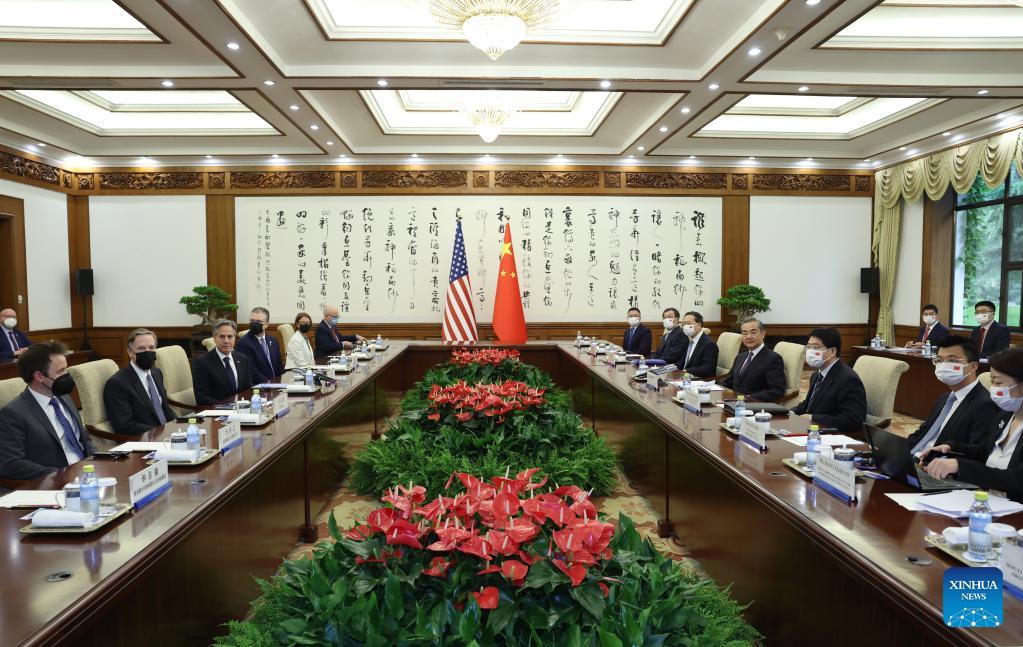
Wang Yi, a member of the Political Bureau of the Communist Party of China (CPC) Central Committee and director of the Office of the Foreign Affairs Commission of the CPC Central Committee, meets with visiting U.S. Secretary of State Antony Blinken in Beijing, capital of China, June 19, 2023. [Photo by Wang Ye/Xinhua]
BEIJING, June 19 (Xinhua) -- Wang Yi, director of the Office of the Foreign Affairs Commission of the Communist Party of China (CPC) Central Committee, met with visiting U.S. Secretary of State Antony Blinken in Beijing on Monday.
Wang, also a member of the Political Bureau of the CPC Central Committee, noted that Blinken's visit comes at a critical juncture in China-U.S. relations, and a choice needs to be made between dialogue and confrontation as well as between cooperation and conflict.
History always moves forward, and China-U.S. relations will also move on. "Reversing the wheels of history will lead nowhere, and overturning what has been achieved is even less desirable," Wang said.
"We need to shoulder our responsibilities to the people, history and the world, avert the downward spiral of the relationship, bring it back to the track of sound and steady development, and jointly explore the right way for China and the United States to get along with each other in the new era," he said.
Noting that relations between China and the United States are at a low point, Wang underscored that the root cause is U.S. misperceptions toward China, which have led to misguided China policies.
China-U.S. relations have gone through ups and downs, and it is necessary for the United States to reflect upon itself, and work with China to jointly manage differences and avoid strategic surprises, Wang said.
He pointed out that in order to stabilize China-U.S. relations, the most urgent task is to act on the common understandings reached between the two presidents with real actions.
In order to ensure the steady and long-term growth of China-U.S. relations, the most critical task is to follow the principles of mutual respect, peaceful coexistence and win-win cooperation put forward by President Xi Jinping as the fundamental guidance, he said.
Wang gave a comprehensive explanation of the historical logic and inevitable trend of China's development and rejuvenation, and elaborated on the distinctive features of Chinese modernization and the rich substance of China's whole-process people's democracy.
He urged the U.S. side not to project onto China the assumption that a strong country is bound to seek hegemony and not to misjudge China with the beaten path of traditional Western powers. "This is key to whether the United States can truly return to an objective and rational policy toward China."
Wang demanded that the United States stop playing up the so-called "China threat", lift illegal unilateral sanctions against China, stop suppressing China's scientific and technological advances, and do not wantonly interfere in China's internal affairs.
He stressed that safeguarding national unity has always been the core of China's core interests. It is where the future of the Chinese nation lies and the abiding historical mission of the CPC.
On the Taiwan question, China has no room for compromise or concession, Wang said.
He said the United States must earnestly abide by the one-China principle set out in the three China-U.S. joint communiques, respect China's sovereignty and territorial integrity, and unequivocally oppose "Taiwan independence."
Blinken said that the U.S. side is committed to going back to the agenda set by the two presidents during their summit in Bali and looks forward to enhancing communication with China, managing differences responsibly and cooperating in areas of common interests.
The two sides also exchanged views on international and regional issues of mutual interest.

Wang Yi, a member of the Political Bureau of the Communist Party of China (CPC) Central Committee and director of the Office of the Foreign Affairs Commission of the CPC Central Committee, meets with visiting U.S. Secretary of State Antony Blinken in Beijing, capital of China, June 19, 2023. [Photo by Wang Ye/Xinhua]

 中文
中文



